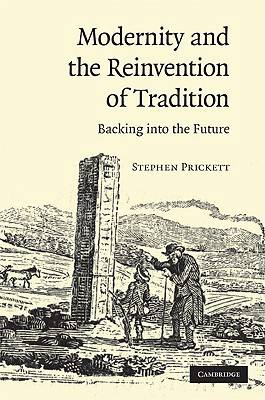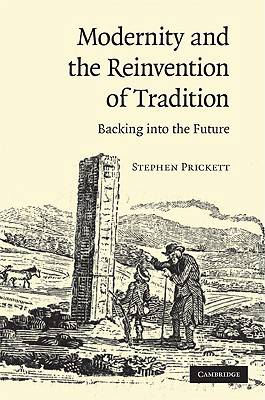
- Afhalen na 1 uur in een winkel met voorraad
- Gratis thuislevering in België vanaf € 30
- Ruim aanbod met 7 miljoen producten
- Afhalen na 1 uur in een winkel met voorraad
- Gratis thuislevering in België vanaf € 30
- Ruim aanbod met 7 miljoen producten
Zoeken
Modernity and the Reinvention of Tradition
Backing Into the Future
Stephen Prickett
Hardcover | Engels
€ 83,95
+ 167 punten
Uitvoering
Omschrijving
The idea of tradition seems a timeless one, but our modern understanding of the term was actually shaped by the Victorian revival of tradition as a cornerstone of religion, art and culture. Stephen Prickett traces how the word 'tradition' fell out of use in English by the middle of the eighteenth century and how it returned in the nineteenth having radically changed and gained in meaning. Prickett analyses the work of authors who, like Burke, perhaps unexpectedly, avoid use of the concept, as well as those who, like Coleridge, Keble and Newman, who, variously influenced by German Romantics, explored it in detail, and disagreed profoundly with each other as to its implications. An important contribution to literature, history and theology, this sweeping work shows how people manufacture their own idea of truth, customs, or ancient wisdom to make sense of the past in terms of a problematic present.
Specificaties
Betrokkenen
- Auteur(s):
- Uitgeverij:
Inhoud
- Aantal bladzijden:
- 274
- Taal:
- Engels
Eigenschappen
- Productcode (EAN):
- 9780521517461
- Verschijningsdatum:
- 29/05/2009
- Uitvoering:
- Hardcover
- Formaat:
- Genaaid
- Afmetingen:
- 150 mm x 229 mm
- Gewicht:
- 566 g

Alleen bij Standaard Boekhandel
+ 167 punten op je klantenkaart van Standaard Boekhandel
Beoordelingen
We publiceren alleen reviews die voldoen aan de voorwaarden voor reviews. Bekijk onze voorwaarden voor reviews.











